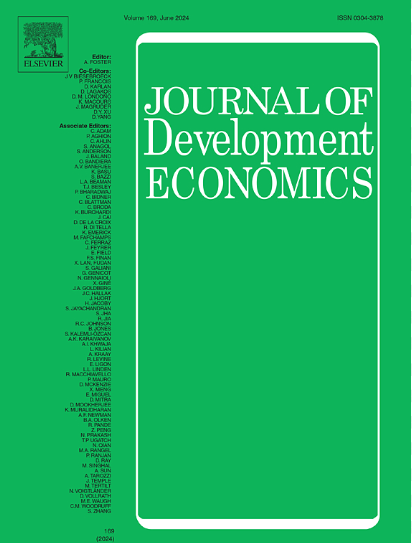骑车健康:无桩共享单车服务对中国人身心健康的影响
IF 4.6
1区 经济学
Q1 ECONOMICS
引用次数: 0
摘要
本文研究了无桩共享单车服务(DBS)对居民身心健康以及社会行为的影响,DBS是中国共享经济的一个关键要素。利用2015年至2020年在中国城市分阶段引入DBS的数据集和多个数据集,我们采用交错DID设计和连续处理来评估因果效应。我们发现,DBS的引入导致身体质量指数(BMI)和抑郁评分显著降低。这些影响因个人的就业状况、家庭物质资本和城市的地理坡度而异。此外,我们发现DBS的加入增加了每周锻炼的频率和持续时间,同时减少了居民的互联网使用和在线社交,表明更积极和线下的社交活动。我们的发现经受住了一系列稳健性检查。本研究扩展了对共享经济的讨论,超越了其经济和商业影响,突出了其社会和健康效益,为共享经济如何促进可持续城市发展和促进健康社会提供了一个新的视角。本文章由计算机程序翻译,如有差异,请以英文原文为准。
Pedaling to wellness: The impact of dockless bike-sharing services on physical and mental health in China
This paper investigates the impact of dockless bike-sharing services (DBS), a key element of the sharing economy in China, on residents’ physical and mental well-being, as well as their social behaviors. Leveraging the phased introduction of DBS in Chinese cities between 2015 and 2020 and multiple data sets, we employ a staggered DID design with continuous treatment to evaluate the causal effects. We find that the introduction of DBS leads to a significant reduction in body mass index (BMI) and depression scores. These effects vary across individuals’ employment status, household physical capital and the geographic slope of cities. Additionally, we find that the entry of DBS increases the frequency and duration of exercise per week, while decreasing residents’ internet usage and online social interactions, indicating more active and offline social engagements. Our findings survive a battery of robustness checks. This study expands the discussion on the sharing economy beyond its economic and commercial impacts to highlight its social and health benefits, offering a fresh perspective on how the sharing economy contributes to sustainable urban development and the promotion of a healthy society.
求助全文
通过发布文献求助,成功后即可免费获取论文全文。
去求助
来源期刊

Journal of Development Economics
ECONOMICS-
CiteScore
8.30
自引率
4.00%
发文量
126
审稿时长
72 days
期刊介绍:
The Journal of Development Economics publishes papers relating to all aspects of economic development - from immediate policy concerns to structural problems of underdevelopment. The emphasis is on quantitative or analytical work, which is relevant as well as intellectually stimulating.
 求助内容:
求助内容: 应助结果提醒方式:
应助结果提醒方式:


